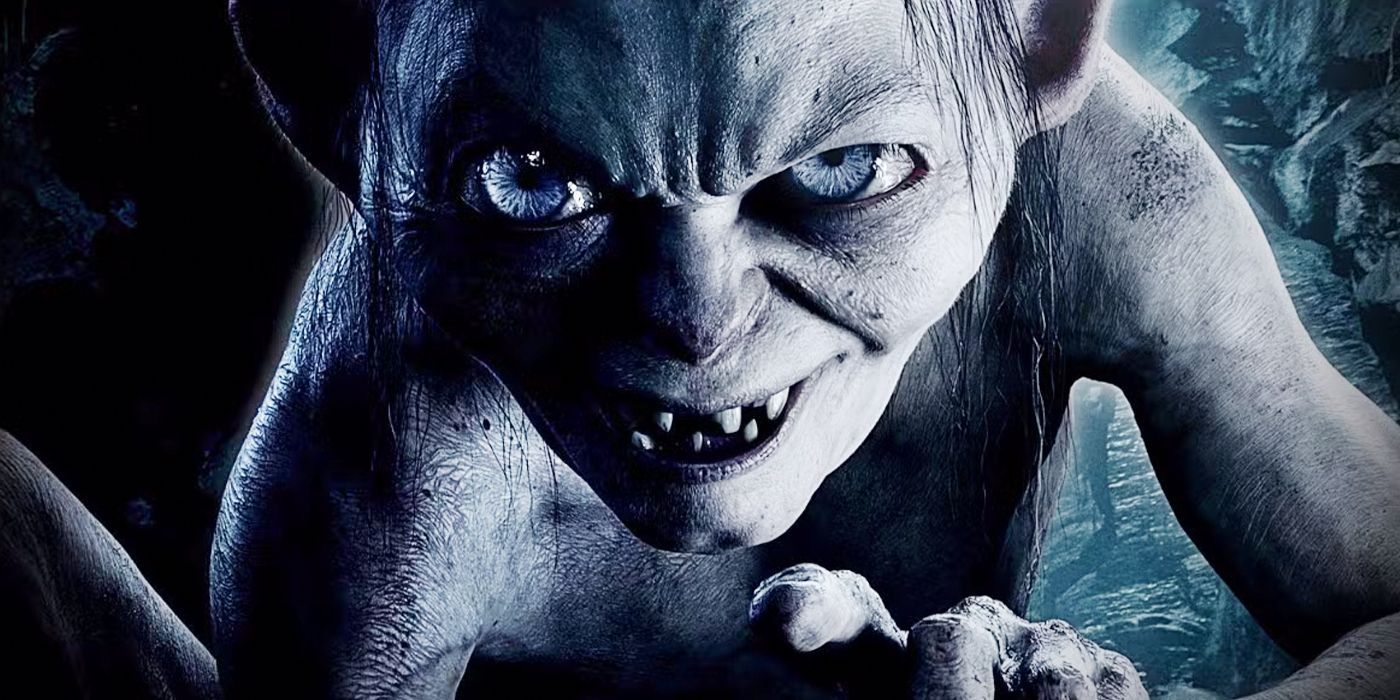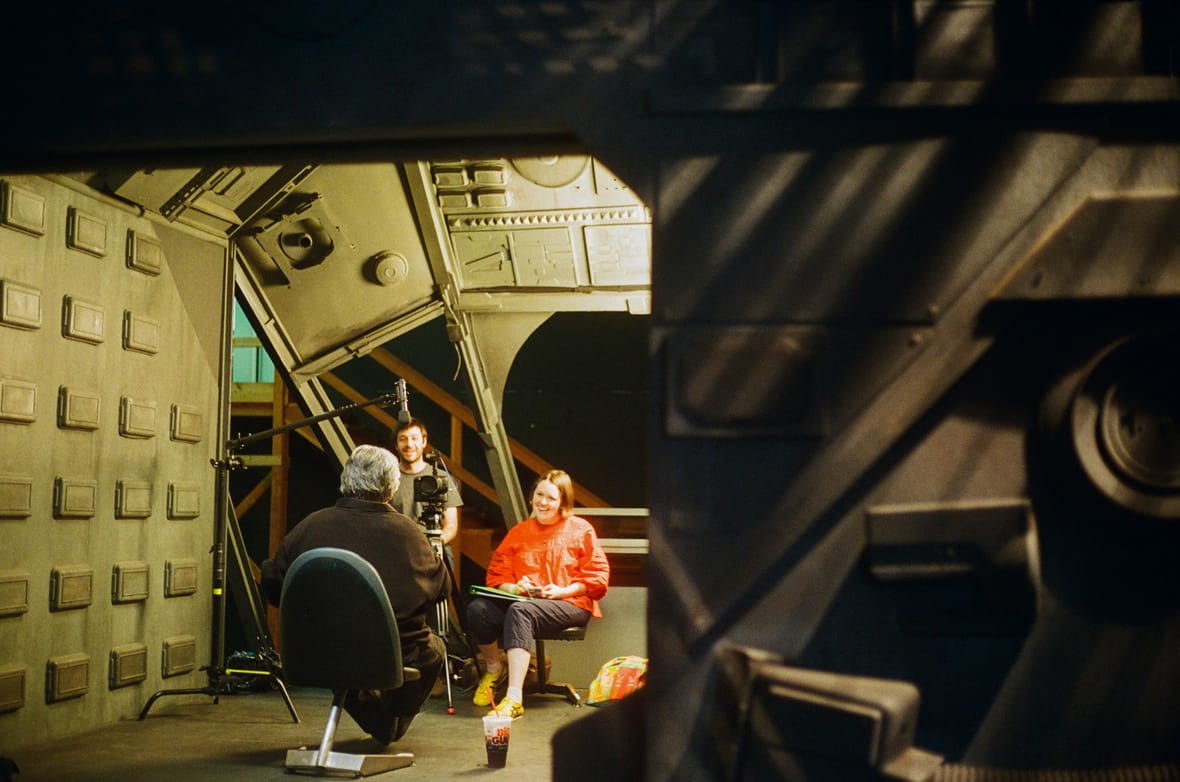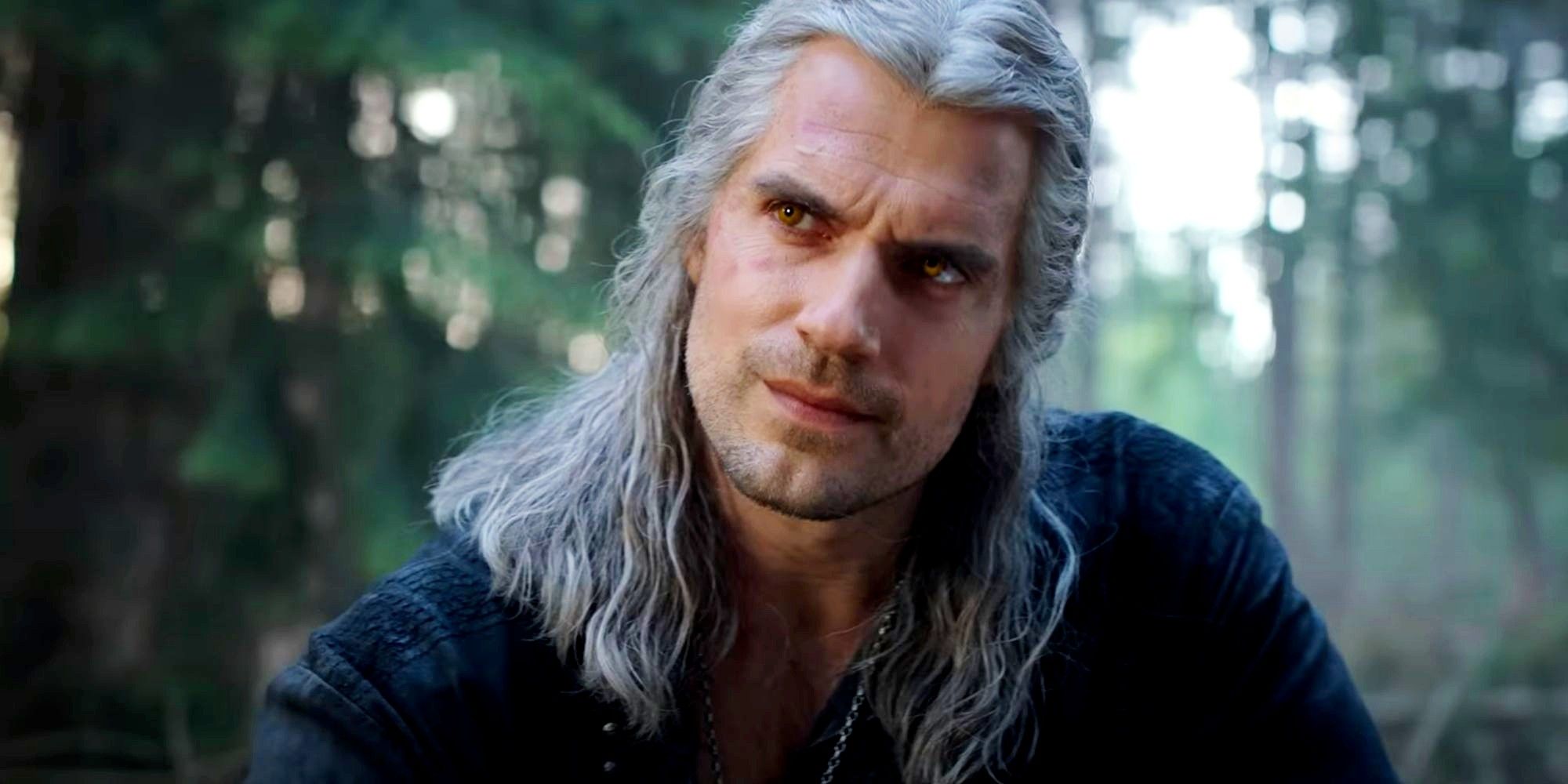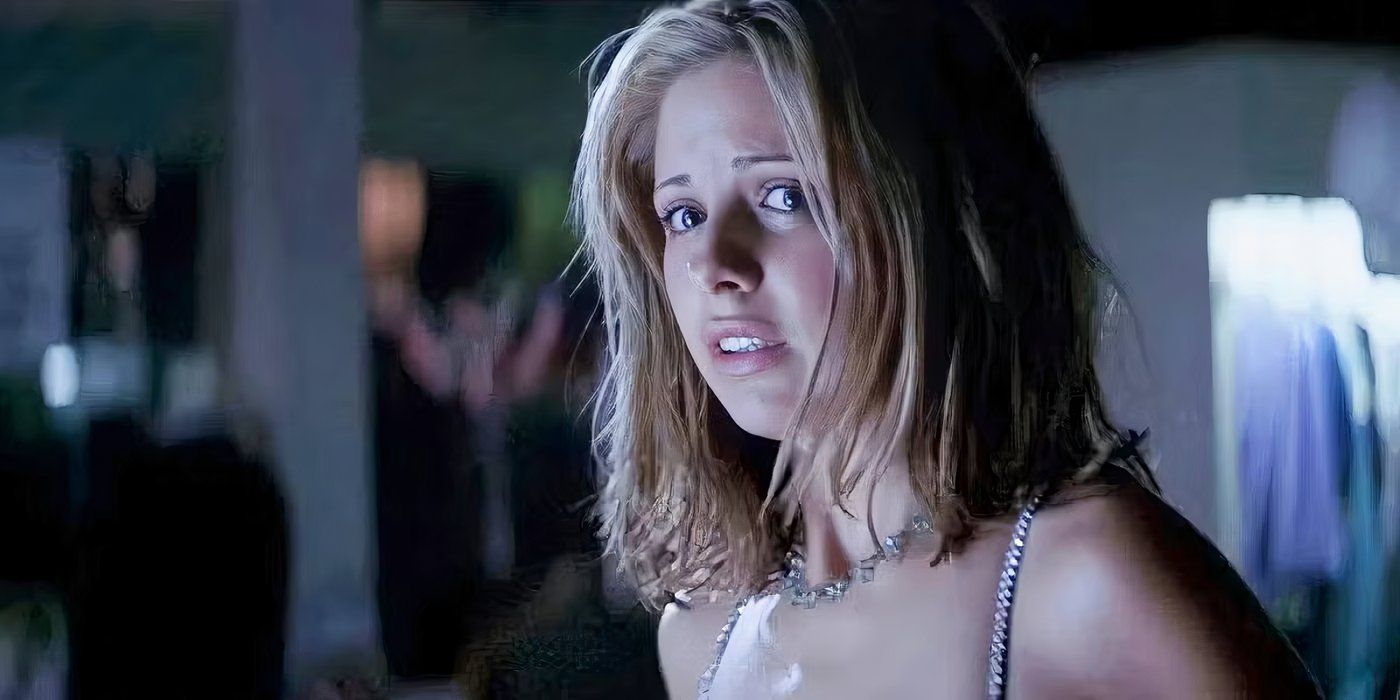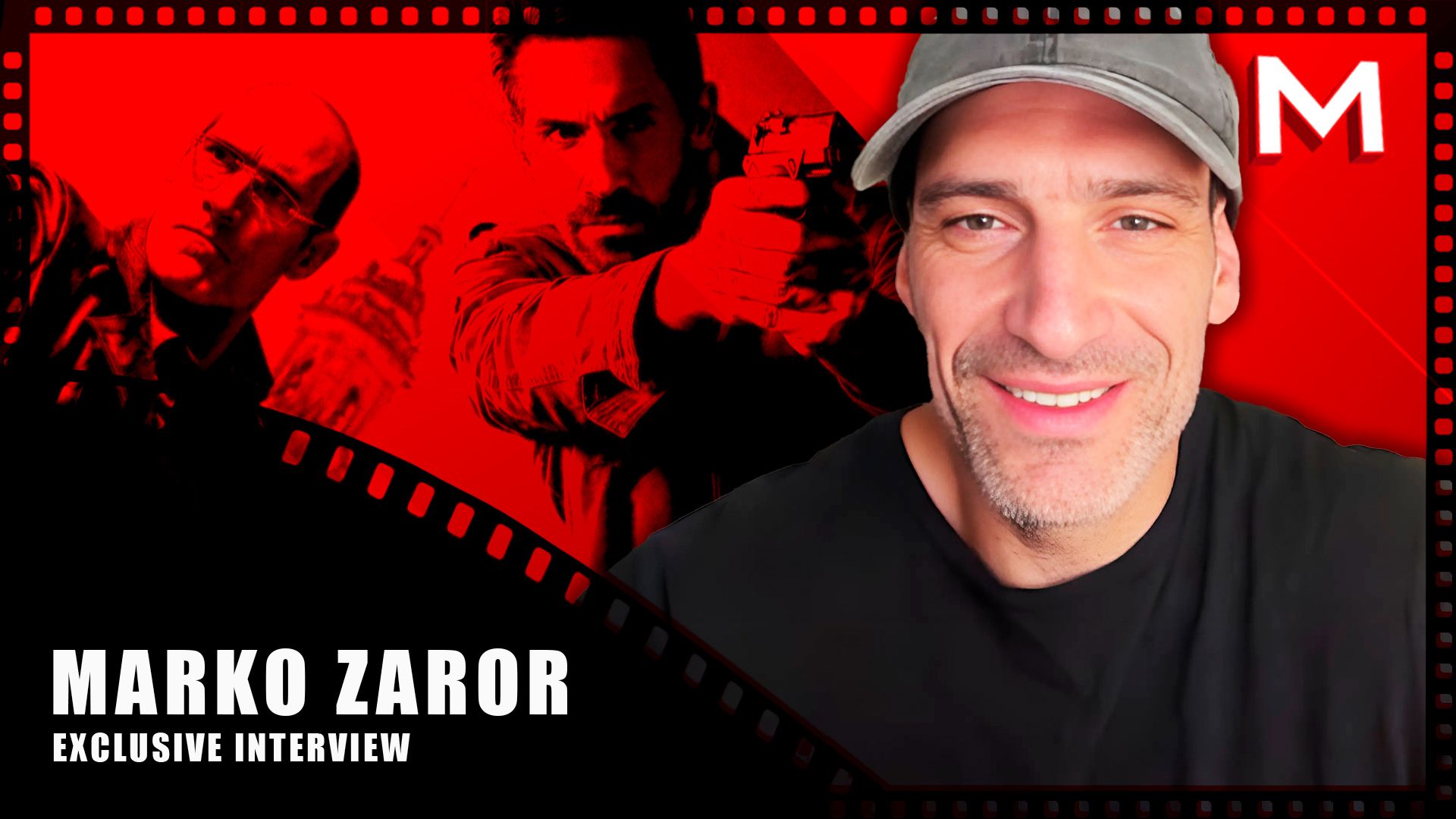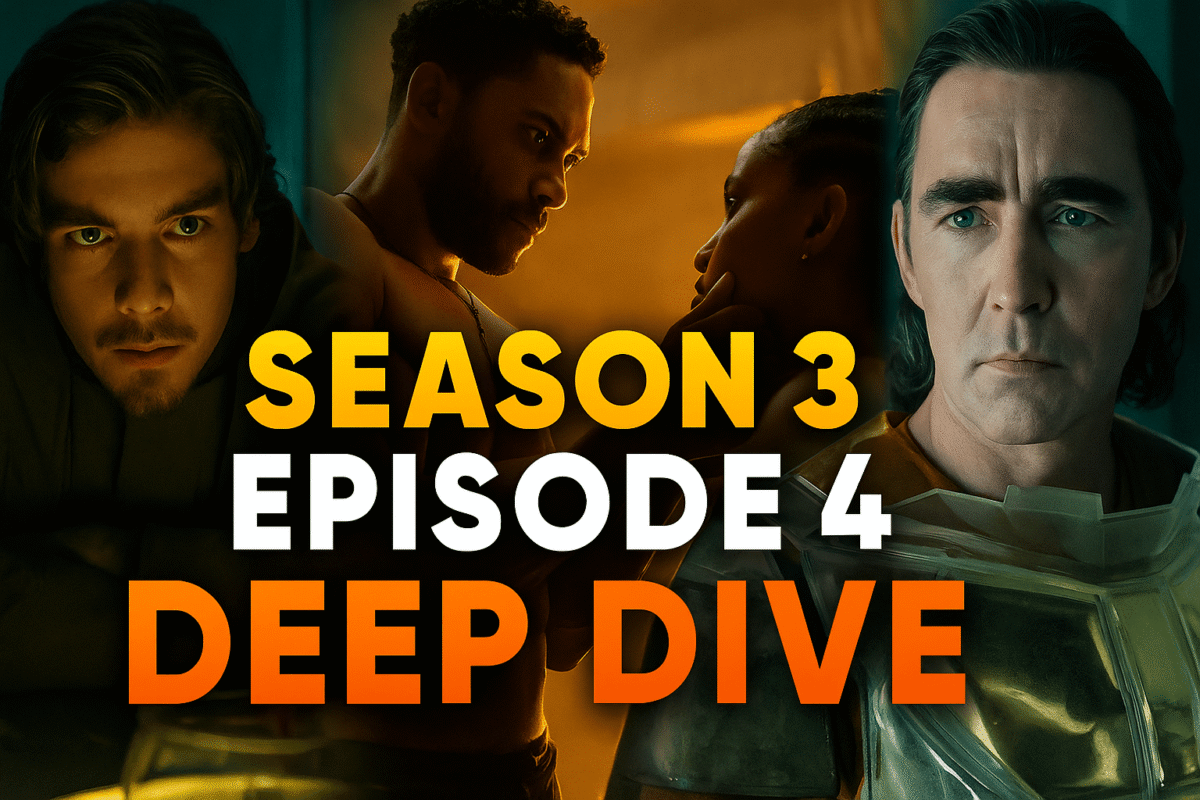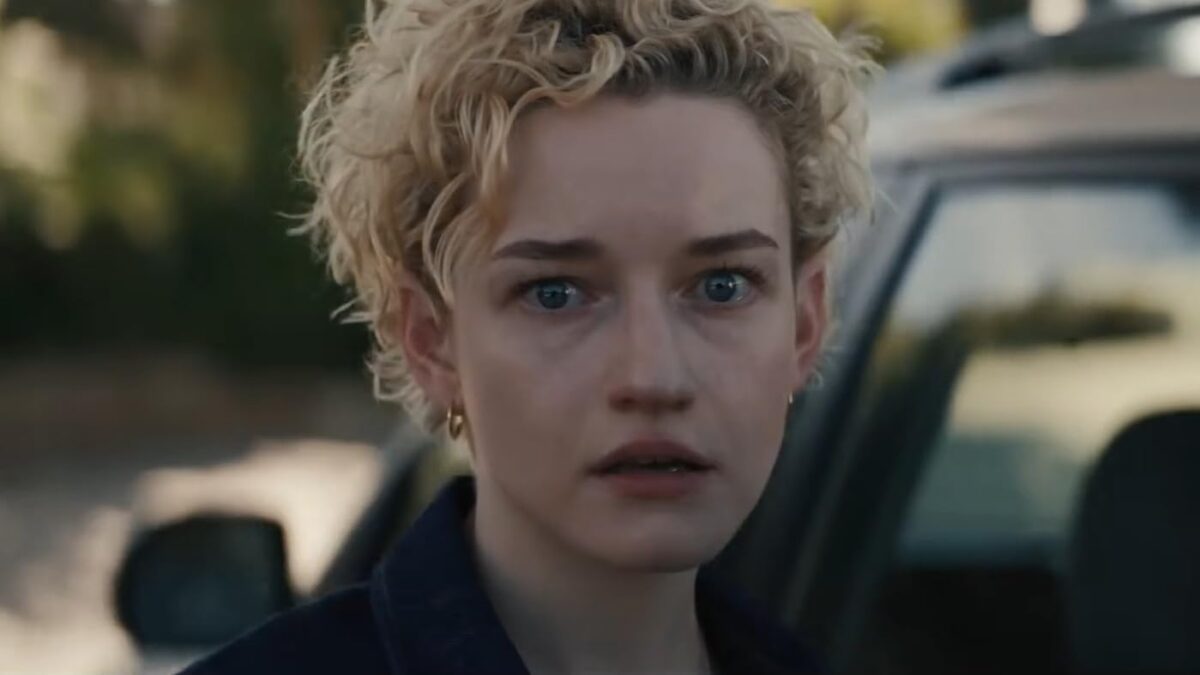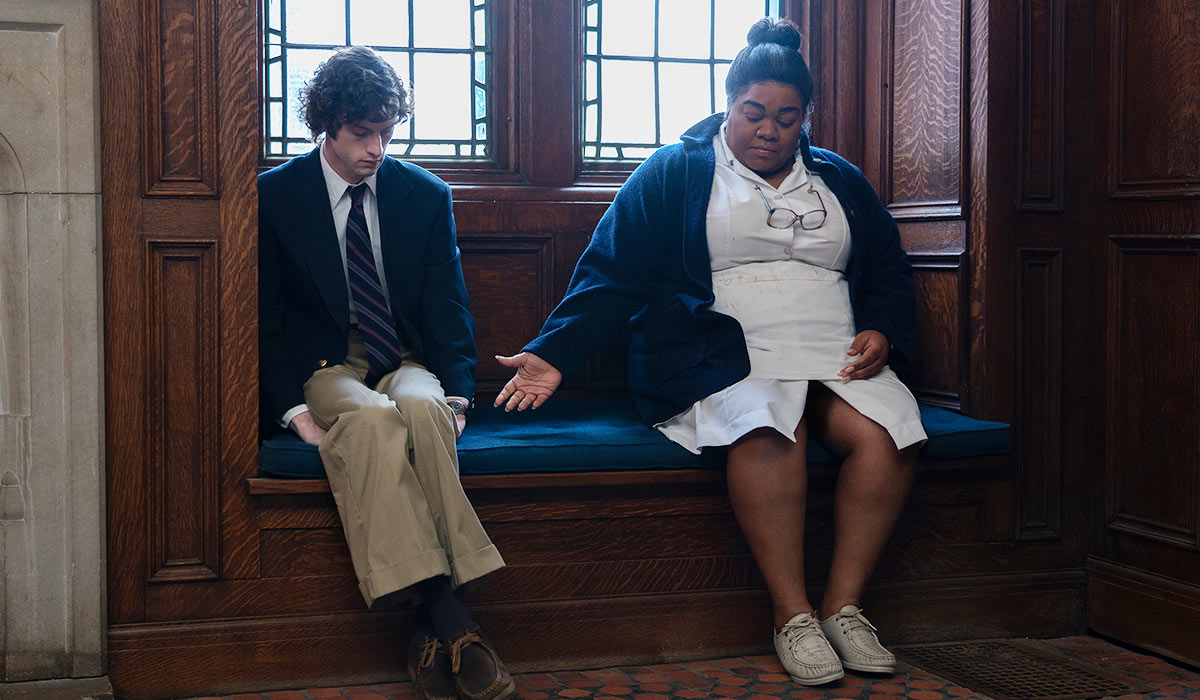
David Hemingson On Writing For Paul Giamatti, Channelling His Boarding School Experiences & More
Nov 1, 2023
After 25 years of writing in Hollywood, David Hemingson is having a moment. A writer and producer on television shows such as “Just Shoot Me!,” “American Dad,” the cult favorite “Don’t Trust the B—- in Apt. 23,” and, “Whiskey Cavalier,” Hemingson is looking at an Oscar nomination in the Original Screenplay category for “The Holdovers,” his first produced feature script. But it only happened because he wrote a television pilot his agent didn’t think it would sell.
READ MORE: “The Holdovers,” “Poor Things” And “All of Us Strangers” gets Telluride Oscar boost
Hemingson had written a pilot script set in a New England boarding school and, to his credit, his agent held on to it. Eventually, it made its way to Alexander Payne who was interested in making a movie in that specific genre. He recalls, “Alexander read it, called me out of the blue, and was like, ‘Hey, I read your TV pilot and I really love it.’ I’m like, ‘Oh my God, this is fantastic.’ And he goes, ‘But I don’t want to make it.’ Dream collapses immediately. And then he’s like, ‘But would you be interested in writing a movie because you seem to know this world.’”
A few years later, their collaboration, “The Holdovers” is selling at the Toronto International Film Festival market to Focus Features. A year later, it debuted at the 2023 Telluride Film Festival and a week or so later, it came in a second for the TIFF People’s Choice Award after Cord Jefferson’s “American Fiction.” And now, with decidedly strong reviews, “The Holdovers” is looking at a number of Academy Award nominations including one for Hemingson himself. A perfect example of good things can come to those who wait and, well, have talent.
Set in 1970, the film centers on Angus (newcomer Dominic Sessa), a student at Barton Academy, an all-male boarding school somewhere in the Northeast. When he is forced to stay at school over the Christmas holiday break, he is put under the care of one of his cranky teachers, Mr. Hunham (Paul Giamatti), and the head cook, Ms. Lamb (Da’Vine Joy Randolph). While at first, it seems none of them have anything to celebrate, they eventually find connections to break them out of their funks and, well, maybe grow a little.
Over the course of our conversation, Hemingson discusses his process for capturing that specific moment in American history, writing for Giamatti, waiting for the movie to happen, what he thinks happened to the characters after the credits role (no real spoilers), and much more.
This interview has been edited for length and clarity.
____
The Playlist: I’ve read that Alexander approached you because he had this idea about making a movie inspired by the 1930s French film, “Merlusse.” Is that correct?
David Hemingson: It’s a little different. He had this idea that he’d seen this film like a dozen years ago, and he was always like, “I don’t know what to do with it because I’m not really from that prep school culture.” And I had written a pilot called “Stonehaven,” which was basically my life story. This kind of blue-collar, lower-middle-class kid ends up at this prep school because his dad’s teaching there. His parents had split, and it’s my life story. And there’s this kind of curmudgeonly uncle character who’s a real hardass and he’s all based on my life. One of the reasons I’ve been with the same rep for 27 years is I write this thing, he reads it, and he’s like, “I love this pilot.” I’m like, “Thank you.” He goes, “What the eff are we going to do with it? This is so specific, and who’s going to make this?” I’m like, “I don’t know, man. Just had to write it. I’m a writer. It’s what I got to do.” He’s like, “All right. Well write something we can sell, will you?” I move on to some other stuff. And to his credit, he hung onto the pilot and passed it on to another client of his, who knew Alexander from film school because he’d heard that Alexander was interested in this arena. And this guy, Niels Meter passed it on to Alexander. Alexander read it, called me out of the blue, and was like, “Hey, I read your TV pilot and I really love it.” I’m like, “Oh my God, this is fantastic.” And he goes, “But I don’t want to make it.” Dream collapses immediately. And then he’s like, “But would you be interested in writing a movie because you seem to know this world.” I said, “Yeah, I came up in this world. I spent six years in this world.” He’s like, “Well, would you be just in writing a feature for me in this world?” And I said, “Nothing would make me happier, man.” And then it was as a threshold matter, he said, 1958 or 1970. And I always felt like, keep in mind, this is in the first couple minutes of our relationship.
Sure.
I was like, “1970 for sure.” He’s like, “O.K., why so strongly?” I said, “Well,” I think at the time it was 2018, I said, “I think 2018 has more in common with 1970 than 1958.”
That makes sense.
I feel like between the haves and have-nots and the racial injustice, and at the time the forever war is going on, I’m like, it just feels like they’re more simpatico, that we can draw more pronounced analogies in the film or mine the cultural zeitgeist more accurate and more effectively. And I said, plus, “Dead Poets Society,” want to steer out of that. He’s like, “Yeah, absolutely.” That’s how it happened. He’d seen this picture, I think from the early thirties, this French movie, and just the log line stuck with him and he wanted to do it. Read my pilot, called me up, “Dude, how do you say no? You immediately say yes to that question.” I said “Yes,” and here we are. Thank God.
How much of what you had originally written in that pilot outside made it into the new script?
I would say from a narrative structural standpoint, nothing whatsoever, but from an emotional character standpoint, a tremendous amount. If you were to slug the two, if you were to read the pilot against the movie, you’d feel some of the same energy. You’d sense the character dynamics, which are very similar, but the actual plot is completely different. Also, that pilot was set in 1980, this is set in 1970. It was a different time, it was a different zeitgeist, different era, different character dynamics, different imperatives, completely different, but the kind of emotional truth of that pilot absolutely lives in this movie.
Did you take inspiration from your own experience for the new script as well?
Yeah. It’s interesting because from a cultural standpoint, there are certain ways of thinking and doing and being in these schools that are sort of hermetically sealed or almost out of time. That kind of carried over. The traditions I was saying earlier, as a producer on the film, when it came down to that opening scene, we were like, “O.K., what do we do here?” What happens is the underclassmen come out with the food and they serve the upperclassmen. The upperclassmen eat first, and then the lowerclassmen are allowed to eat. The teachers will be at the master’s table or the teacher’s table up top like this, and they will not engage with any kind of eye contact.
Do you feel you channeled your experience through Angus?
Absolutely. I absolutely mined elements of my past and one of the great things about working with Alexander is that he really encourages that. What is the truth? I was just like, “O.K., I’m going to write the way I felt, but I’m going to write about the alienation and sort the off-access feeling.” I felt othered at the school. I was a scholarship kid. My parents had had a very difficult divorce. There was this character, my uncle, who basically was the Paul character who got me through it, through this incredibly tough baroquely profane worldview that he installed in me. But yeah, I totally felt like Angus was my experience distilled through and commemorated in another character, another person with a different constellation of issues, and a different set of challenges. And Paul, absolutely, and Mary basically was my mom. I remember thinking about my mom who was a nurse, got up a quarter four in the morning so she could go work at the ICU and be home in time to make dinner for me when I got home from school. And her total complete and utter devotion to me as a single mom. I just thought about the women who worked with her, the RNs and the LPNs who worked with her, and the women who worked at the cafeteria in our school. And I’m not old enough to have been in Vietnam, but my friend’s older brothers and uncles and how rich versus poor, black versus white, who went and who didn’t go, who died and who didn’t die. And I thought to myself, “What if my mom had lost me in a similar circumstance? What would that do to her? How would that impact her?” And I just wrote Mary from that emotional standpoint of an incredibly, strong devoted woman who’s had the center of her life just blown out by this tremendous injustice, and just wrote my mom’s emotional kind of reality that way.
One of the things that popped from the screenplay is that the dialogue between the teenagers feels so spot on even for the era.
Yeah, yeah.
How did you make it feel so authentic? Or do you sort of feel like the actors are elevating it to make it feel as real as it needs to be?
I think they’re elevating it, but I mean honestly, I was one of those kids for six years. And by the way, the other thing is my best friend from those years named Sean Francis Barry, he’s an actor, a wonderful guy. He’s still my best friend. We talk every day.
Oh, fun.
Yeah, [we] have a very longstanding friendship and we’re incredibly close. He was hugely helpful to me in just recounting some of the things that we said and did together, what our friends got up to. I have this time machine so I could go back and actually say if I wanted to buy weed from someone, and I had wanted to trade cigarettes for pornography…back when you couldn’t get anything. It’s like, “What’s the contraband? How would we talk about it? If you cross the smoking area and you were an underclassman, how fast would a senior find you and beat the tar out of you?” That “Lord of the Flies” thing that those boys kind of go through, they’re challenging each other and vulnerability is considered to be an absolute no-no because if you’re vulnerable around these young men, they’ll find a way to exploit and destroy you.
Obviously, you’re writing this with the idea that Alexander is going to direct it. When you wrote Paul’s character, were you thinking of Paul Giamatti because of the relationship with Alexander, or was the fact he was cast a surprise?
Honestly, I think the third or fourth conversation [with Payne] was like, “Wow do you feel about Paul Giamatti?” And I was like, “Are you kidding me? I would give my life to work with Paul Giamatti. Absolutely.” And the weird thing is, and I’ll just as an aside, our dads, Paul’s dad, and my dad knew each other in college. Which is the freakiest thing. And I found out from Paul’s dad because he was the president of my university, and when I was graduating, I met him and he recognized my last name and was like, did your father graduate in ’60? It turns out that Paul Giamatti’s dad and my dad were in the same seminar senior year, which meant to me it was meant to be.
I keep talking to people who’ve seen the movie and they think Paul is perfect casting because he’s played this role so many times. And I’m like, “No, he actually hasn’t.“
Yeah.
He had that role in “Win-Win” where he was a coach, but it’s very different.
Yeah, the character, Paul, is based on my uncle. His name’s Earl Cahale. And Earl Cahale had this incredible mind and he was like a man out of time. He was born in 1920, and by the way, Paul’s character in my mind is born in 1920. Which makes sense ’cause he’d be around 50 years old in 1970, right? My uncle was a World War II vet, had seen some action, I think had been kind of damaged by it, but was this incredibly effusive and just curmudgeon and so many of Paul’s lines, “Life is like a hen house ladder, shitty and short.” That’s directly from my uncle. “Jesus Christ, what kind of fascist hash brown are you running here?” That’s something that he would say all the time.
And I just was sort of like, I’m just going to take all of that. And Alexander was getting these drafts and he would be like, “This is great, this is great.” He knew what Paul could do. And so that part of it honestly was really easy. After the table read, there were no changes to the script. I mean, we read it, and because I’m from TV, I’m used to, “O.K., what am I rewriting?” And he’s like, “No, leave it. It’s ready. It was really kind of a blessed thing the movie came together like that.”
Have you thought about what happens to these characters after the end of the film?
Absolutely, I have. I think Paul goes on to have an interesting life in the seventies. I think maybe he wore some groovy sideburns. I’m not sure. But he does become a happier man and a more liberated man. I think he and Angus eventually speak again in years to come. And I think Angus is sort of saved and redeemed and goes on to a life because of the sacrifice that Paul made for him. I think he learns from that sacrifice and I think that he moves on. I absolutely think about these characters now. I like to think of it almost like a novel. I like to think that they existed before the movie and they exist now after the movie.
Angus doesn’t become a Republican Yuppie working on Wall Street in the 1980s does he?
No, not even remotely. No.
Well, that’s a relief. You had this long and crazy impressive career in television, and you just mentioned you started working on this in 2018. Film is, for better or worse, a much longer process than television tends to be.
Very much so.
Were there moments when you thought this movie was never going to happen?
I knew there was another picture that was going to go ahead. I think Alexander has talked about this, and that movie fell apart at the 11th hour, but I always believed it would get made because I believed in Alexander. And he’s the kind of guy who he doesn’t shine you on. I knew the extent of his conviction. I knew the nature of our relationship. I never doubted that we’d do it eventually. I didn’t know how many years it would take, but something happened with this other picture and it fell out, and it was like, the screenplay’s close, and I’m jamming on this thing to get it ready, man. And we got it ready. And I’m so glad that Paul signed on when he did. He read a fairly early draft. I think in 18 months or two years in, he read a draft and he was like, “Yeah, I’m in.” And then mostly it was finding Mary and finding the kid. Finding [Angus] was the hardest thing.
“The Holdovers” is now in limited release. It opens nationwide on Nov. 10.
Publisher: Source link
Conrad Is Suffering, but I’m Having the Time of My Life
Editor's Note: The following contains spoilers for The Summer I Turned Pretty Season 3 Episode 5.I'll be honest: I didn't really get into the second season of The Summer I Turned Pretty until everybody got to Cousins Beach and the…
Aug 9, 2025
This Surreal Animated Movie With Some of Today’s Funniest People Is Unlike Anything You’ll See This Year
Boys Go to Jupiter, the feature debut of writer/director/producer/composer Julian Glander, finds beauty in mundanity. Set in suburban Florida between Christmas and New Year’s Eve, this strange but lovely film is unlike any animated feature you’ll see this year. This…
Aug 9, 2025
Betrayals and Demerzel’s Stressful Gaze
Foundation Season 3 Episode 4, titled The Stress of Her Regard, isn’t just a mouthful, it’s a pressure cooker. This episode drops bombshells we’ve been waiting on since Season 1 and still manages to leave us stressed, confused, and emotionally…
Aug 8, 2025
Weapons Review | Flickreel
Weapons has a premise right out of a classic urban legend. The kind that the camp counselors would tell around a fire to scare the bejesus out of the younger kids. As a chilling narrator explains, seventeen children from the…
Aug 8, 2025
